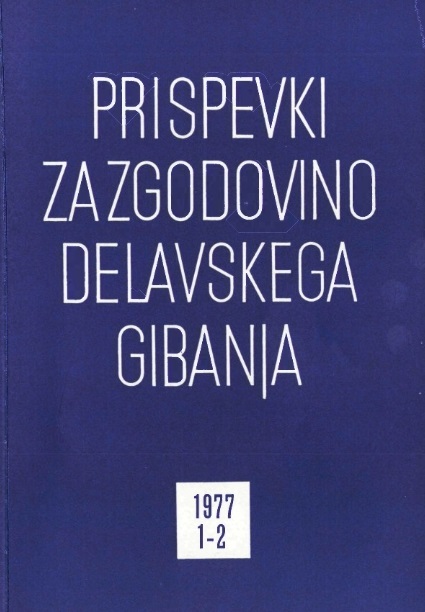O odnosih med italijanskimi in slovenskimi socialisti v Julijski krajini (1888—1917)
On the Relations Between Italian and Slovene Socialists in Venezia-Giulia
Author(s): Elio ApihContributor(s): Nada Kobal (Translator)
Subject(s): Political history, Government/Political systems, International relations/trade, 19th Century, Pre-WW I & WW I (1900 -1919)
Published by: Inštitut za novejšo zgodovino
Keywords: Italian socialists; Slovene Socialists; Venezia Giulia; socialists relations; political history; social liberation; 1888-1917;
Summary/Abstract: Until the disintegration of Austria-Hungary, the activity of labour parties in Trieste was encumbered by then national question. Confederazione operaia (Worker's Coefedariton), the first legal socialist organization in Venezia-Giulia, was organized in three sections: the Italian, the Slovene and the German. The fundamental problem was cooperation between Slovene and Italian proletariat. The latter regarded the notion of a nation as a cultural value only, while Slovenec considered the national idea also a factor of social liberation. In spite of the difficulties in mutual relations due to the differences between non-qualified Slovenes and qualified Italians, as well as because of bureaucratization and sympathizing with the Irredentist movement of a part of the Italian leaders, cooperation did exist all the time. Pittoni and Tuma in particular made great efforts towards this end. Unfortunately, the leaders of the two sections of the Trieste proletariat never discussed the national idea and its role in the struggle for social liberation. As a result, the socialist movement in Venezia-Giulia experienced grave tests in the year 1918.
Journal: Prispevki za novejšo zgodovino (before 1960: Prispevki za zgodovino delavskega gibanja)
- Issue Year: 17/1977
- Issue No: 1-2
- Page Range: 97-103
- Page Count: 7
- Language: Slovenian

